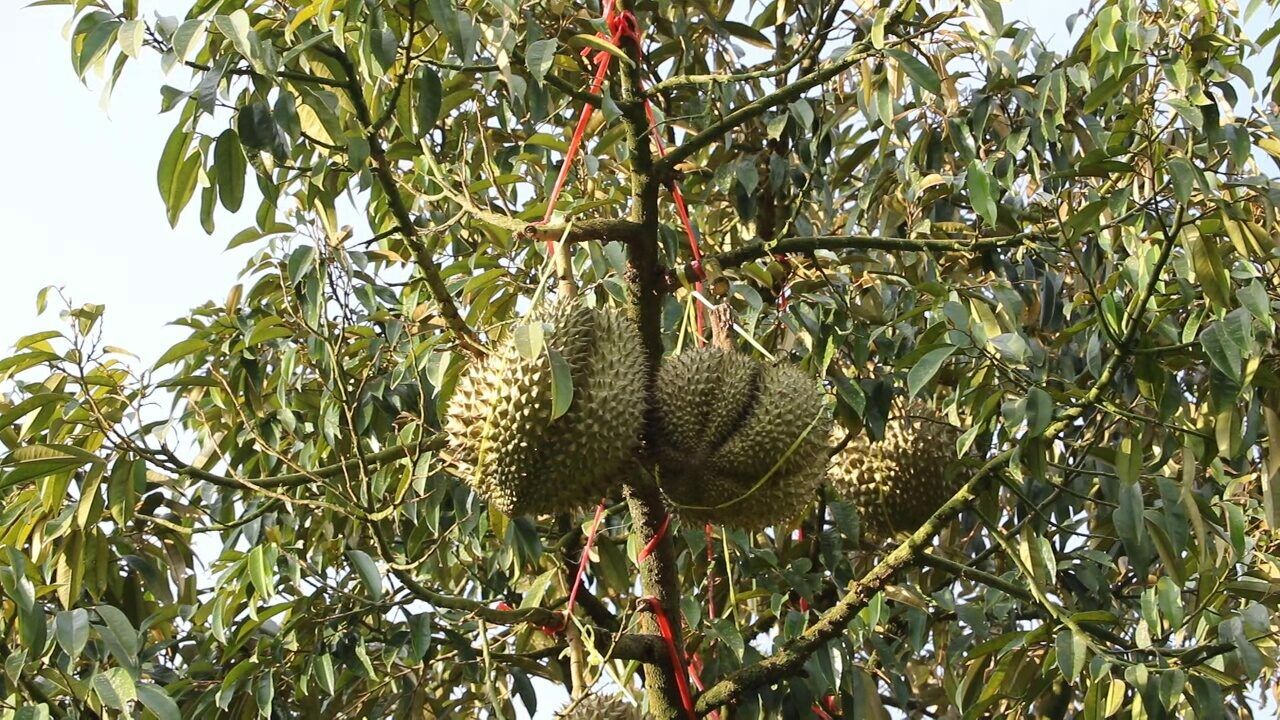Thai durian exporters face losses due to new Chinese regulations

Durian farmers and exporters in Chumphon province are facing significant financial losses due to new Chinese import regulations requiring certification for the absence of Basic Yellow 2: an organic compound classified by the World Health Organisation as a Group 2B carcinogen. Thailand currently lacks the necessary testing equipment, leading to delays and financial strain for the industry.
The new Chinese regulations, effective from January 10, mandate that all durian exports from Thailand include a test report confirming no presence of Basic Yellow 2, alongside a phytosanitary certificate and cadmium test report. As a result, over 1,000 exporters and numerous farmers in Chumphon, particularly in Thung Tako and Lang Suan districts, are experiencing severe disruptions.
The durian trade, typically bustling, has slowed considerably, with many packing houses temporarily halting operations due to the stringent Chinese requirements. Without the ability to test in Thailand, export batches must be sent to Chinese checkpoints for testing, resulting in prolonged wait times.
This delay can cause the fruit to over-ripen, lose weight, and decrease in quality, leading to a drop in prices. Some shipments have even been rejected due to the presence of the dye.
Natthamon Rithipraditchoke, an exporter from LCY, expressed concerns over the current situation. The off-season durians, expected to fetch high prices during the upcoming Chinese New Year, are now causing stress for both exporters and farmers.
Natthamon has already paid 24 million baht (US$693,530) in deposits to farmers but is hesitant to harvest due to the risk of rejection and the long waiting times at Chinese checkpoints, potentially resulting in losses of up to 5 million baht (US$144,485) per container.

Durian export
Natthamon urges the Thai government to negotiate with China or to facilitate the import of testing equipment to Thailand. The delay has widespread effects, impacting not only exporters and farmers but also the workforce, with her packing house alone employing over 80 people.
Similarly, San Chimhath, another exporter, reported that all seven of his containers were returned due to extended waiting periods at Chinese checkpoints. Despite losses of approximately 3 million baht (US$86,690) per container, he opted to sell the durian locally to mitigate damage.
San anticipates that up to 200 containers could be affected by these new regulations, each holding around 18,000 kilogrammes of durian, leading to potential losses in the billions of baht.
San also faces challenges with durians he has reserved in Chumphon and Nakhon Si Thammarat provinces. He is negotiating with farmers to lower prices from the contracted 210 baht (US$6) per kilogramme to 160 baht (US$4.6), selling them at 80 baht (US$2.3) per kilogramme locally. This compromise aims to share the financial burden amidst the current export halt, reported KhaoSod.
Pornpet Chindahong, a 49 year old durian farmer, revealed that exporters have placed deposits for her nearly 10-rai plantation but the delays have caused the fruit to start ripening and falling. Pornpet intended to sell out-of-season durians at high prices during the Chinese New Year festival but now faces substantial losses. She calls for urgent government intervention to resolve the issue.

Latest Thailand News
Follow The Thaiger on Google News:


























